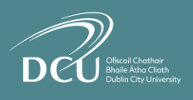About Professional Master Of Education (post Primary Education) in Dublin City University
Programme Structure
The Professional Master of Education (PME) programme starts in late August each year. Students are required to complete a Placement Induction Programme which runs in advance of formal lectures. During this induction period students complete systematic observations in their host school. Formal lectures begin in September and are held in DCU St. Patrick's Campus, Drumcondra on Tuesday and Wednesday from 4pm to 8pm. Students will participate in lectures, seminars, tutorials and online components.
School Placement
The programme includes two school placements. Students complete placement in one school in Year 1 and in a different school in Year 2. Placements can occur in a variety of school settings including Voluntary Secondary Schools, Educate Together Secondary Schools, Community Colleges, Community Schools and Comprehensive Schools.
Career Prospects
While most of our graduates will work as teachers in post-primary schools, others will pursue further studies in education and related fields, such as guidance, pastoral care, school leadership and management. Others again will work in Further Education, Higher Education, government departments and other education and training settings.
Academic qualification equivalents
- Typically, you need a First Class Bachelor’s degree from a recognised top ranked university and/or affiliated colleges with a minimum of 60% average across all semesters. Students who have studied at a lower tiered institution may be considered with an overall average mark of 65% or above.
English language requirements (one of the below):
- IELTS for Postgraduate Taught Programmes: Overall score of 6.5 or above, with no less than 6.0 in any one skill. Additionally DCUBS require 6.5 in Speaking and Writing.
- TOEFL: Total Score of 92. DCU Business School additionally requires all section scores 21 or above.
- PTE Academic: Minimum score of 63, with no section score below 59
Dublin City University Highlights
| University Type |
Public University |
| Campus Setting |
Urban |
| Establishment Year |
1975 |
| No. of Campuses |
3 |
| No. of Residence Halls |
3 |
| International students |
2,337
71% in UG, 29% in PG courses |
| Research Funding |
~35 million EUR |
| Cost of Attendance |
~22,500 EUR |
| Applications Accepted |
Online/Offline |
| Work-Study |
Available |
| Intake Type |
Semester wise |
| Mode of Program |
Full time and online |
Dublin City University Average Tution fees And Other Expenses
Foreign students who wish to enrol at Dublin City University must be aware of the associated costs in order to budget appropriately and apply for scholarships when needed. The tuition costs for well-known programmes and other expenses related to studying in Ireland are covered below.
Tuition Fee for Dublin City University
Here are the details of the UG and PG fees for international students planning to study at any of the following faculties.
| Programs |
UG (EUR) |
PG (EUR) |
| Engineering |
15,000 |
17,000 |
| Business |
14,000 |
16,000-19,000 |
| Humanities |
15,000 |
15,000 |
| Science |
15,000 |
15,000 |
| Education |
12,600 |
13,700 |
Dublin City University Cost of Living
The cost of living here includes monthly expenses an international student would require to study at Dublin City University:
| Expense |
Monthly Cost (EUR) |
| Rent (On-campus) |
692-1216 |
| Rent (Off-campus) |
850-1300 |
| Food |
250 |
| Travel |
132 |
| Books and Materials |
75 |
| Medical |
45 |
| Miscellaneous |
178 |
| Total |
Approximately 2,222 |
